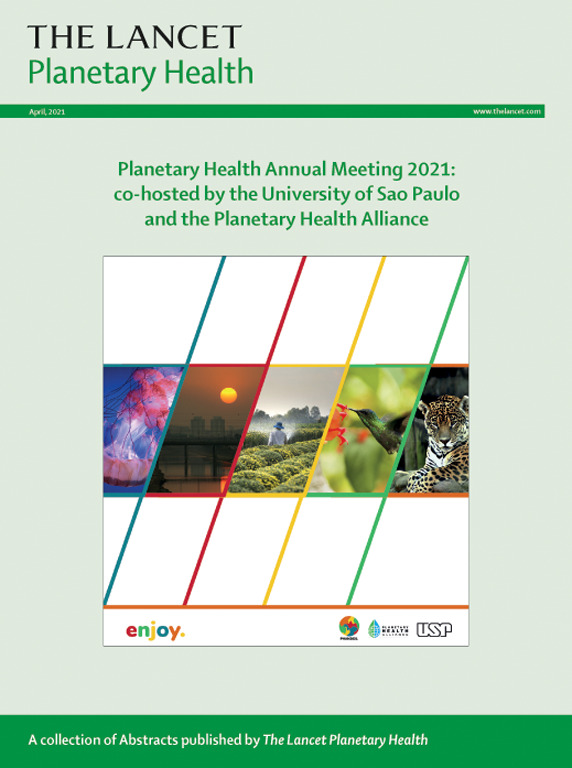应对与高温有关的健康风险:紧急情况与公平之间的平衡的紧迫性
IF 24.1
1区 医学
Q1 ENVIRONMENTAL SCIENCES
引用次数: 0
摘要
2024 年夏天,印度多个地区的气温比往年更高。拥有数百万居民的大城市德里的气温打破了之前的多项记录。低收入家庭的住所无法提供多少防暑降温措施,个人也难以获得水等基本设施。有越来越多的证据表明,高温会对死亡率和发病率造成影响,因此,管理机构正在寻求及时有效的应对措施。有必要认识到,与高温有关的疾病和死亡不能仅仅作为急性灾害来处理,而应作为需要有计划应对的公共卫生和经济挑战来处理。可持续的、公平的应对措施将提高抗灾能力的长期结构性努力与应急准备结合起来,事实证明,这样的应对措施对于避免暴露在高温环境中的脆弱社区因与高温相关的健康风险而造成的基本上可以预防的死亡、发病和经济冲击最为有效。气候与健康方面的联合行动有助于在多方参与下实现多个发展目标。需要包括医疗保健、监测、风险沟通、备灾、生计和就业以及适应和城市规划在内的多个部门来提高公众意识和参与度,促使行为改变,并集中资源对城市规划和卫生系统进行亟需的结构性改革,以挽救生命和避免损失。为了减少与热有关的健康风险,必须紧急解决印度的脆弱性、不平等和气候行动问题。本文章由计算机程序翻译,如有差异,请以英文原文为准。
Responding to heat-related health risks: the urgency of an equipoise between emergency and equity
In the summer of 2024, there were higher temperatures than usual in several parts of India. Temperatures in Delhi, a huge city with millions of residents, broke several previous records. Low-income households have dwellings that do not offer much protection from the heat, and individuals struggle to access basic amenities, such as water. With accumulating evidence on consequent impacts for mortality and morbidity, governance structures are seeking to respond in a timely and efficient manner. There is a need to recognise that heat-related illnesses and deaths are not best addressed merely as an acute disaster but as public health and economic challenges that require planned responses. Responses that are sustainable and equitable combine long-term structural efforts at resilience building with emergency preparedness and prove to be most effective in averting the largely preventable deaths, morbidities, and economic shocks arising from heat-related health risks among exposed and vulnerable communities. Joint action on climate and health enhances achievement of multiple developmental goals with multistakeholder participation. Diverse sectors, including medical care, surveillance, risk communication, disaster preparedness, livelihoods and jobs, and adaptation and urban planning, are needed to raise public awareness and engagement, induce behavioural change, and focus resources for the much-needed structural changes in urban planning and health systems that can save lives and avert damages. To reduce heat-related health risks, vulnerability, inequity, and climate action in the Indian context must be urgently addressed.
求助全文
通过发布文献求助,成功后即可免费获取论文全文。
去求助
来源期刊

Lancet Planetary Health
Multiple-
CiteScore
28.40
自引率
2.30%
发文量
272
审稿时长
8 weeks
期刊介绍:
The Lancet Planetary Health is a gold Open Access journal dedicated to investigating and addressing the multifaceted determinants of healthy human civilizations and their impact on natural systems. Positioned as a key player in sustainable development, the journal covers a broad, interdisciplinary scope, encompassing areas such as poverty, nutrition, gender equity, water and sanitation, energy, economic growth, industrialization, inequality, urbanization, human consumption and production, climate change, ocean health, land use, peace, and justice.
With a commitment to publishing high-quality research, comment, and correspondence, it aims to be the leading journal for sustainable development in the face of unprecedented dangers and threats.
 求助内容:
求助内容: 应助结果提醒方式:
应助结果提醒方式:


